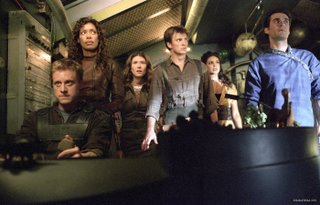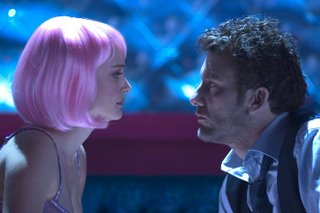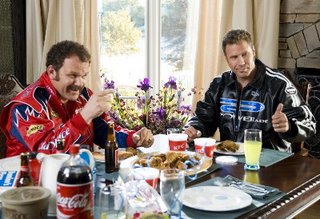 Serenity (2005)
Serenity (2005)Whoo! More RE-views! Rules.
You know, I really got into that review last time. I got into the movie this time around, too, and I probably will next time.
I'm not even sure my RE-view has a purpose, as my feelings about the movie haven't changed. I suppose I could write ruminations about Mal and River as father and daughter, Watcher and Slayer, unconditional love and duty, but I won't. I could tell you about how I approached the show from Simon and River's relationship, from his point of view specifically, but I won't do that either. Jacob's recap does that much and more. To be honest, it's so detailed and expertly written that I'd wager it might be better than the movie itself. I mean, you need to see the movie to understand, but his recap digs deep into the myth-arc of the series, of any Joss series. There's little I say that he didn't.
I can say that I didn't mind Book being marginalized in the movie because he could grate in the series, but his character is marginalized to the point where someone who didn't know him from the series wouldn't entirely understand his relationship with the other characters, generally, and Mal, specifically. Joss excels at establishing believable characters in a matter of seconds, so that's not the problem. It's the part where Book dies and Mal gets all worked up about him being part of the crew even if he does live on Haven now that would go over the head of someone who had never seen Book living on the boat to begin with.
It sucked that Jayne's character was dumbed down for the movie. I don't mean that he was a braintrust in the series, but a lot of his complexity, or startling lack thereof, was removed in the movie in a way that didn't work for me. You know that arc where Jayne tries to sell Simon and River back to the Alliance, then he seems to change his mind, gets double-crossed, discovered by Mal, almost killed by Mal, buys them apples, then warned by Simon? You know, that one? Those apples were my character touchstone. Jayne wasn't motivated by guilt (at least not entirely so). He wanted to buy back his place on Serenity. He needed to show Mal he was a valuable resource. It was, for me, the beginning of his transformation from mercenary to loyal member of the crew, but the movie kind of . . . pretends that none of that ever happened. Which sucks.
Of course, the worst marginalization was that of Wash because it gave Joss license to spearify him! What was that? I get it, sort of. It works along the same principle as Anya dying in the series finale of Buffy or Wesley in that of Angel. Someone has to die because none of them should have lived that long in the first place. There's no reason to think that everyone would survive a combined Reaver/Alliance attack, and Wash had the least to lose. His death could have the greatest emotional impact with the least plot impact.
I'm stickin' with my original grade. This movie rocks pretty hard.


